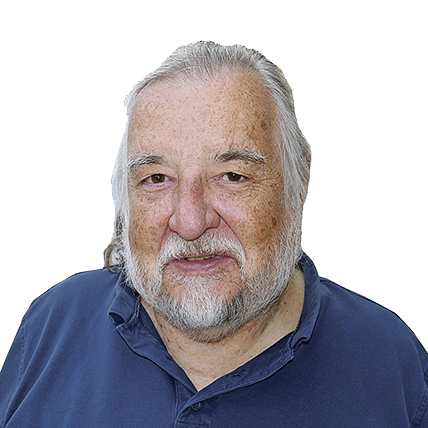I’m rather curious as to how many people, other than myself, threw up their hands in disgust upon being told by the Chamber of Commerce that their normally sanguine and reasonably informative “Meet the Candidates” forum had to be cancelled because only three of the possible sixteen candidates being invited to participate responded – full stop.
When I first started attending these events in 2016, I was particularly enthralled by the fact that as an observer simply walking into the forum seeking answers from the candidates, I also was being given the “opportunity” to suggest questions that could be asked of said individuals – but just not quite as many as I ended up writing down on about four sheets of paper – only to find out that these same items had to be “edited” slightly to reflect a slightly more “cordial” and Party-neutral way of expressing them sans the requisite bloodletting I was hoping to elicit, if only for “entertainment”.
In 2024, however, I find myself again seeking some bloodletting on the political stage, and with good reason. First of all, I live in the Batoche riding, and to put it in the bluntest of terms, Batoche deserves a candidate prepared to work for its constituents, not their retirement.
From my perspective, at least, that means hopefully come Oct. 29, we will no longer be saddled with another Saskatchewan Party robot who will do the party’s bidding without question. However, judging by the comments SP candidate Darlene Rowden recently provided the Wakaw Recorder, Trina Miller (NDP), Erin Spencer (SK United) and Hamish Graham (Green Party) are running against a Sask. Party candidate who supports business as usual.
Although the Recorder interviewer, Carol Baldwin, was looking for some substance in their statements while interviewing the various candidates, Rowden said nothing of substance, instead proclaiming her eagerness to “work with our Premier, Scott Moe and the Saskatchewan Party to keep our Province and economy moving forward.” Given her “prominence” within the Saskatchewan Party hierarchy (Provincial Director since 2011), this sounds more like a candidate who’s looking forward to being a member of Cabinet in an important portfolio, most likely as Minister of Education (she has been a school trustee for 14 years with the Saskatchewan Rivers Public School Division, and until recently the Board Chair), as opposed to being the individual Batoche riding voters would want giving priority to their concerns, especially when it comes to justice reform and a better provision for economic opportunity.
The concern I have with respect to Rowden’s candidacy is not without proof of behaviour indicating that she considers her role as a Saskatchewan Party member to be her priority, as opposed to the concerns of voters in the Batoche riding. In an April 8 letter to school board “stakeholders” she expressed serious reservation over the bargaining position STF contract negotiators were taking with respect to class size. In that correspondence, she noted that “Class size and complexity is not a listed item within the scope of collective bargaining of the Provincial Collective Bargaining Agreement, nor do we believe it should be included in the Agreement” – essentially reinforcing the government’s bargaining position at the time, while further noting that to do so “would restrict or direct funds to certain priorities while not considering a holistic and whole-system approach.”
Cutting through the fog of these statements, an “holistic” approach in education means that while the purpose of education is to prepare students for both “academic and life challenges”, the teaching principles that should guide this learning process should include “self-discovery, healthy relationships and social skills,” among others, while a “whole system” approach, while stressing the necessity of being able to work in collaboration with others, must also demand that they are able to think critically and solve problems on their own, if necessary, skills that to put it bluntly, do not flourish in a social medium environment.
The problem is that for all of these objectives to be met, there has to be some level of learning proficiency and equality of knowledge within the classroom, but the elite are urged to pursue greater knowledge or even to participate in the instruction of other class members, while special aid to the less advantaged is provided to retain a “normalcy” in the classroom’s constituency and objective achievements. As every teacher I’ve ever taught with knows, such standards cannot be maintained in order to keep the academic learning wheel progressing unless learning objectives are themselves attained – thereby creating the guidelines in determining the desirable classroom maximum enrolment.
Rowden argues that “’Class size and composition/complexity’ language was introduced into collective bargaining in B.C. in 1980s and 1990s and it quickly became a restrictive and high cost ‘cap and quota’ system to manage diverse needs in classrooms.” Of course that occurred, simply because there are an increasing number of our population who place no value on a sound education, and through processes designed for them personally to not contribute to educational funding have allowed our schools to take a “What can we do without and still pretend we’re actually educating our children?”
The issue here, though, is by what “right” is the Board Chair being allowed to take what is obviously a government’s position on a labour contract dispute, even while maintaining that as “a member of the locally elected Board, we are committed to ongoing engagement with teachers, staff, students, parents and families to understand our local circumstances and priorities for our schools.”
Doesn’t that mean that the Board should be also agreeing with such concerns, ESPECIALLY if the teachers are prepared to engage their concerns in the public forum by possibly initiating strike action or working to rule?
Rowden’s actions as a Board representative are too ethically challenged by her clearly and preferably insisting upon supporting the government’s position on teacher bargaining over classroom size, so why wouldn’t potential voters want to consider this conflict as a “negative”, when although writing this letter in April, she had already been declared the SP’s candidate for the Batoche riding on Feb. 5.
In short, what’s the difference in candidate reliability in supporting the needs of the Batoche riding between Rowden and Kirsch?
Come Oct. 28, guess we’ll find out the hard way…





